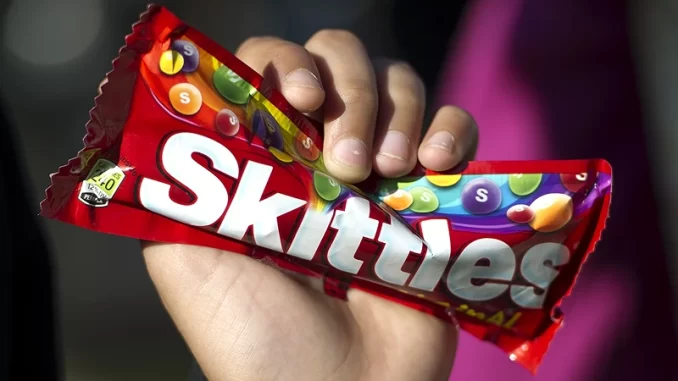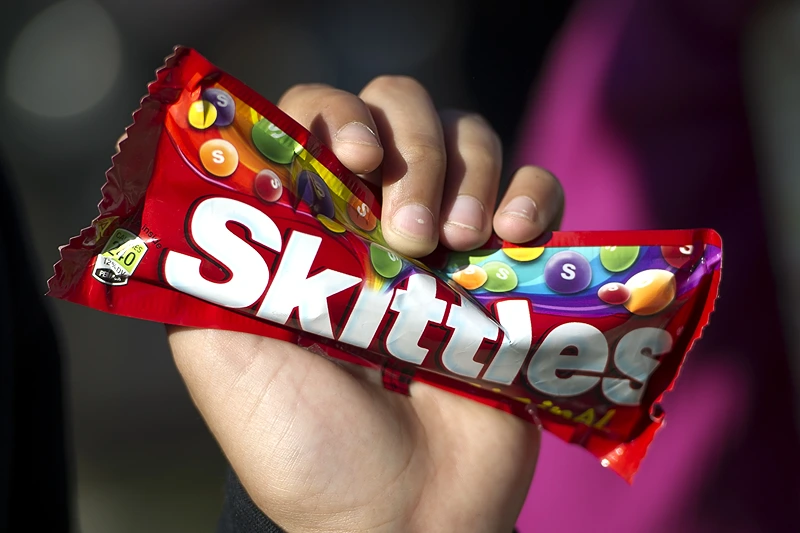

OAN Brooke Mallory
UPDATED 5:16 PM – Friday, March 17, 2023
Your favorite candies, snacks, and other food items might soon become a thing of the past if you’re a resident of California.
California lawmakers are considering enacting a law that would essentially ban the sale of candies and foods over the presence of additives inside that are linked to both cancer and organ damage.
Democrat Assemblyman Jesse Gabriel (D-Calif.) introduced this new legislation, which pinpoints five different additives, three of which were already banned by the European Union.
The five specific additives are propyl paraben, brominated vegetable oil, potassium bromate, red dye #3, and titanium dioxide.
“Californians shouldn’t have to worry that the food they buy in their neighborhood grocery store might be full of dangerous additives or toxic chemicals,” Gabriel said in a statement. “This bill will correct for a concerning lack of federal oversight and help protect our kids, public health, and the safety of our food supply,” said Gabriel.
If this bill were to pass, that would mean that California-based companies would be blocked from manufacturing their food products with these additives, even if the products were sold in another state.
Gabriel went on to explain that the overall goal was to remove the substances from their brand recipes altogether, not just in the state of California.
The main reason why these additives were chosen is due to the standards set by Europe.
Titanium dioxide, which is used for food coloring, is considered to be one of the more harmful additives on the list since it’s considered a carcinogen.
Animal studies have shown that the substance can irritate the eyes, nose, throat and even cause lung cancer.
German research in 2015 found that titanium dioxide was able to build up in our organs, and French research in 2017 found that the substance could increase the risk of damaging the immune system and causing internal inflammation that often times leads to cancer.
Long-term exposure to brominated vegetable oil has been known to cause neurologic symptoms such as headache, memory loss, and impaired balance or coordination
Plaintiffs in the California lawsuit assert that Mars, the company that produces Skittles, is continuing to market the sweet treat despite acknowledging the hazards of the ingredient in 2016.
“We know they are harmful and that children are likely eating more of these chemicals than adults. It makes no sense that the same products food manufacturers sell in California are sold in the EU but without these toxic chemicals,” said Susan Little, an employee at the Environmental Working Group (EWG).
“We know they are harmful and that children are likely eating more of these chemicals than adults. It makes no sense that the same products food manufacturers sell in California are sold in the EU but without these toxic chemicals,” said Little.
In 2020, the EWG reported that children who ingested red dye #3, another one of the substances listed, were much more likely to be both hyperactive and inattentive.
Inattentiveness and hyperactivity are two major symptoms of Attention Deficit Hyperactivity Disorder (ADHD).
An estimated 6.1 million children now have ADHD in the U.S., and adult ADHD statistics continue to rise as well in 2023.
Another listed substance, potassium bromate, is prohibited in the EU, Canada, and Brazil due to its associations with thyroid and kidney malignancies.
Additional foods that would be subject to the prohibition across California include Trident sugar-free gum, jelly beans, Sour Patch Kids, Campbell’s Soup, and specific bread types.
If consumers want to avoid the ingredients, they’re advised to read the ingredient labels on the food packaging before making a purchase.
Stay informed! Receive breaking news blasts directly to your inbox for free. Subscribe here. https://www.oann.com/alerts

